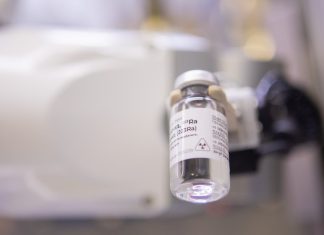Pharmaceutical industry analysts have optimistic expectations for the public segment. However, the state segment has an ambiguous attitude to the industry. Medicine is undergoing a crisis: a crisis of technology, a crisis of trust, and a crisis of communications. To solve this, we all need to move in the same direction and synchronize our efforts and potentials.
I believe that medications should not circulate in isolation from the healthcare system itself, but due to the lack of coordinated actions in the industry, this happens all the time. For instance, the cardiac program, which is part of the national project “Healthcare,” should be coordinated with drug provision under this program, but now the drugs sit in warehouses in the regions, having not reached the patients in need. And this is not the only example. Moreover, on the one hand, it is a pain in the neck of regional authorities, while on the other, it is a source of professional concern for pharmaceutical companies. Where is our glorified marketing and sales system, which should be responsive to needs? We need to synchronize our actions. And the forecasts should be based on the actual timing that exists within the entire long commodity distribution chain.
In my opinion, we currently lack knowledge, there is not enough data in the healthcare organization system. There are individual indicators, that’s true, like the number of cases, deaths, rates of hospitalization — but no one sees the whole picture. No one knows what to do with this picture either. We live in a time of a crisis, and the pharmaceutical industry is very well prepared for crisis situations and can help doctors.
Of course, the industry provides support, but doctors today need IT technologies, and they need communication skills and knowledge. The system has not been debugged, doctors sometimes do not understand how to teach a patient some basic rules on taking a particular drug. The result, is failure to treat the patient properly.
Another issue that needs close attention in the state segment is lending to medical organizations. I recommend companies that currently work with supplies to the state medical network to see how much the accounts payable have grown over the past five or six months at least, although even last year the situation was already abnormal. As you are competent in organization and in the economic issues, I ask you to help major medical organizations to deal with the problem, because today they are experiencing serious difficulties with paying for the medicines supplied.
There is a lot of discussion on the wide-spread off-label drug use. Moreover, they are appointed by federal centers with the support of pharmaceutical companies, and the regions have to distribute these drugs for outpatient basis treatment. But here we also work in very difficult conditions. We are ordered to provide drugs, but there is no infrastructure to do it at the regional level.
All these questions lead me to one conclusion: we need to think together to decide how to expand our knowledge in the field of healthcare organization in order to competently synchronize the industry with the healthcare system. Perhaps you underestimate the difficulty of the situation. It is close to critical. And I urge you, colleagues, to help in the systematic work on solving the crisis situation.





